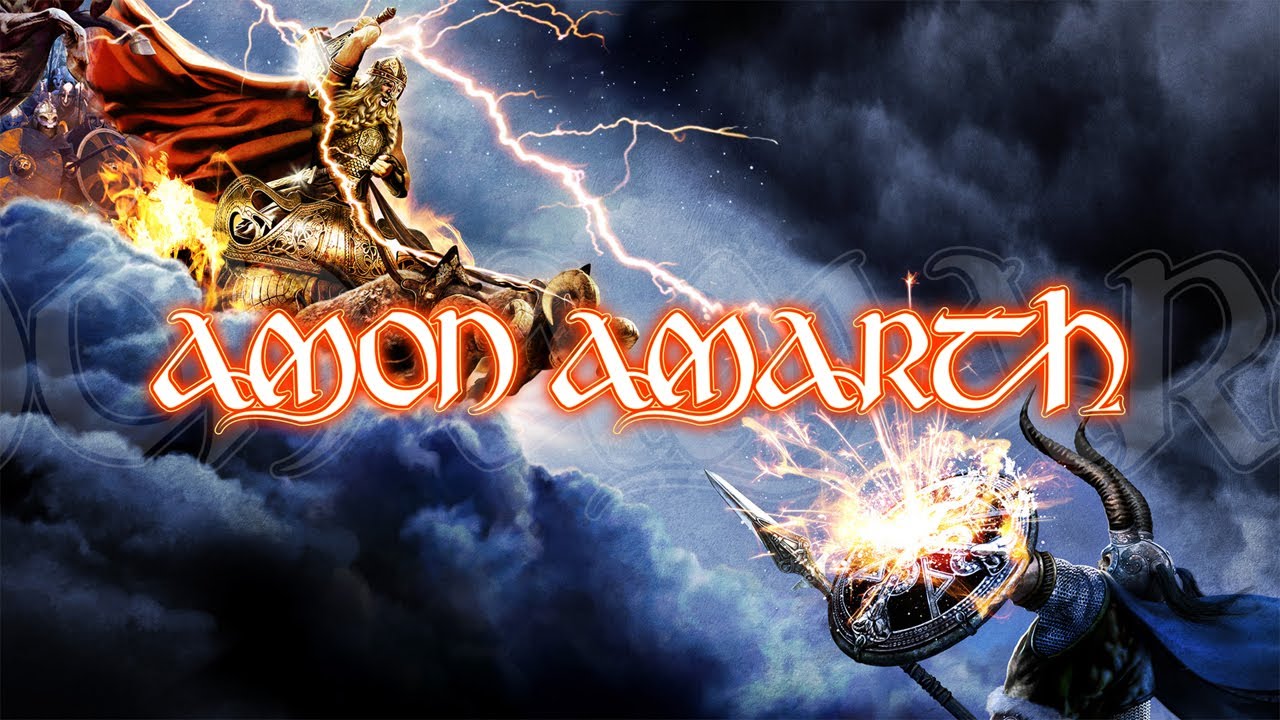Listen. I understand why Amon Amarth is popular. This melodic death band not only has the benefit of being from Sweden but also solely concentrates their imagery around Vikings. The result is an easy to understand bridge for people wanting to journey into harsher realms of metal. Scandinavian viking metal. Okay. I got it. The vocals are gruff but not without the easy backing support of choruses, and driving drum kick, and harmonized guitar solos. The imagery is expected and never veers off course from assumed tradition. For all intents and purposes, Amon Amarth is a simple and digestible version of extreme metal. It is non-threatening and uncomplicated. My mixed feelings of this Norse obsessed band only comes because their vanilla presence contrasts sharply with their effective execution of that presence.
Deceiver of the Gods is the 9th album from a band whose lineup has remained steady for 8 solid albums. It is impressive to see a band retain an internal cohesion that only grows stronger by the year. This fact makes sense as their records, musically, have not really steered off course since 1999’s The Crusher. As an aside from longtime fans, or Scandinavian mythology professors, Amon Amarth’s catalog could be grouped into one album with one album cover displaying a horned Nordic god surrounded by fire and lighting. This decade of toning and shaping has lead to a sound, which could be called non adventurous, that is refined and optimized for one of the most successful extreme metal bands living today.
With all that being said, it is hard to point out any landmarks in Deceiver of the Gods. Almost all of the songs retain some sort of mid tempo pace, which almost always discusses some dimension of battle. There is a near cringe inducing head splatter at the beginning of “Blood Eagle,” followed by vocal work which borders on parody. The lyrics for “Father of the Wolf” could be guessed in a sing along. More and more I feel that Amon Amarth’s success is an indication that people latch onto this band because of a small desire to keep heavy metal ridiculous and fictional. There is a belief that it should always be ridiculous and fun. Again, if you were looking for any sort of dynamic dimensions then you are on the wrong battlefield my friend.
In fact, the only thing of real note in Deceiver of the Gods is “Hel,” which comes near the end of the record. Joining the band in it is one time Candlemass singer, Messiah Marcolin, who not only created some of the best epic 80’s doom but also is now know for this video. The potential for Marcolin’s cool operatic style to contrast with Johan Hegg’s fiery voice, which conceptually should work, results in a sort of blundered sound. Hegg dominates the mix and Amon Amarth’s chaotic fury drowns out any interesting potential this collaboration could have offered.
Even though I am very critical, there are points on Deceiver of the Gods which which are undeniably quality material. The mid breakdown of “Under Siege” induces a smile. “We Shall Destroy” has a cinematic quality of rousing motivation. “Warriors of the North” sort of breaks tradition, having a slower trot in contrast to the mid tempo melodic death gallop. This may be subtle, but the change in pace is appreciated. Also, the bonus disc of this album, full of Motorhead and Judas Priest covers, is both hilarious and entertaining. For as much shit as I give Amon Amarth, they know what to do and how to do it. This band has become an institution that has too much invested in it to change direction. They are the gatekeepers of extreme metal. Despite my resolve with this band, it is hard for me to recommend this record for anyone looking for something other than cliff notes to melodic death. Deceiver of the Gods is an effective album but far from necessary to your metal collection.
Tags: AMON AMARTH, Deceiver of the Gods, Hollywood Metal, Kaptain CarbonCategorised in: Metal

